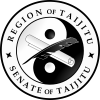Difference between revisions of "Template:Current featured article"
(DId not update elections section >_<) |
(+"the") |
||
| Line 5: | Line 5: | ||
Under the constitution, the Senate alone has the power to define the internal procedures by which it does business. They can not be modified via a petition and referendum as another law might be. The constitution also provides that the Speaker of the Senate may use their discretion in instances where no procedure exists. | Under the constitution, the Senate alone has the power to define the internal procedures by which it does business. They can not be modified via a petition and referendum as another law might be. The constitution also provides that the Speaker of the Senate may use their discretion in instances where no procedure exists. | ||
| − | Elections for the Senate occur every seven weeks, and are concurrent with delegate elections. All seven members are elected at large. This is done by means of the single transferable vote using the Droop quota. The use of this system was intended to allow for proportional representation without requiring candidates to affiliate themselves with a party, something which would have conflicted with the fact that at the time of system's adoption many Senators had no party affiliation. Any citizen is eligible to run for the office of Senator or to vote in an election. Vacancies that occur between elections are filled by recounting the ballots of the most recent election as if the absent senator were not running. The most recent election of the Senate was concluded on June 6, 2011. | + | Elections for the Senate occur every seven weeks, and are concurrent with delegate elections. All seven members are elected at large. This is done by means of the single transferable vote using the Droop quota. The use of this system was intended to allow for proportional representation without requiring candidates to affiliate themselves with a party, something which would have conflicted with the fact that at the time of the system's adoption many Senators had no party affiliation. Any citizen is eligible to run for the office of Senator or to vote in an election. Vacancies that occur between elections are filled by recounting the ballots of the most recent election as if the absent senator were not running. The most recent election of the Senate was concluded on June 6, 2011. |
:Main article: [[Senate of Taijitu]] | :Main article: [[Senate of Taijitu]] | ||
Revision as of 14:46, 29 June 2011
The Senate of Taijitu is the legislative branch of the government of Taijitu. Taijitu's legislature is unicameral, and the Senate does not share power with any other legislative chamber. The Senate's legal basis lies in the second article of the Constitution of Taijitu which defines both its composition and powers. In addition to the creation of legislation, the Senate is also responsible for overseeing both the delegate and Court of Taijitu in certain matters. The Senate presently consists of three senators, the number calculated by the formula established by the Senate and Court Membership Act. They are elected at large every seven weeks, with the most recent election having been held in June of 2011.
Under the constitution, the Senate alone has the power to define the internal procedures by which it does business. They can not be modified via a petition and referendum as another law might be. The constitution also provides that the Speaker of the Senate may use their discretion in instances where no procedure exists.
Elections for the Senate occur every seven weeks, and are concurrent with delegate elections. All seven members are elected at large. This is done by means of the single transferable vote using the Droop quota. The use of this system was intended to allow for proportional representation without requiring candidates to affiliate themselves with a party, something which would have conflicted with the fact that at the time of the system's adoption many Senators had no party affiliation. Any citizen is eligible to run for the office of Senator or to vote in an election. Vacancies that occur between elections are filled by recounting the ballots of the most recent election as if the absent senator were not running. The most recent election of the Senate was concluded on June 6, 2011.
- Main article: Senate of Taijitu
